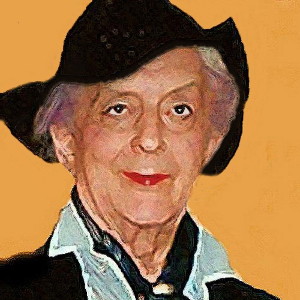
THE QUENTIN CRISP ARCHIVES
|
Quentin Crisp was one of our most cherished satirists and commentators. Immortalized by John Hurt in the touching film version of his book. The Naked Civil Servant, Mr. Crisp’s flippancy, self-deprecation and theatricality masked a fervent intelligence and a sharp eye for the detail of contemporary English life.
Born in 1908, into a resoundingly ordinary middle class family, Quentin Crisp was traumatized by the inequities of a boarding school education in Derbyshire, before starting work as a book designer. Thereafter he made his living as a life model, before his seminal autobiography was published in January 1968. This is a collection of different arrangements of one song, "Where Did They Go?"
The original was made in 1978 but never released. It has just been retrieved from a drawer and remixed in several versions. The full single and several dance versions are available for download from the website of Cherry Red Records. Here is an excerpt from Mr. Crisp's How to Become a Virgin describing the making of this recording Mr. Napier-Bell: Shortly before I left MacDougal Street [The Players Theater] someone came to my dressing-room (which was really a dance rehearsal room above the stage) and announced that he wished to make a record of the show. I was a little less disbelieving than I might have been because about two years previously I had encountered a Mr Napier-Bell who had in mind a similar but even more outlandish scheme. He wanted me to sing. This proposal I simply could not take seriously at all. My speaking voice has been described by the kinder newspapers as ‘tarnished silver’. If this is an apt phrase, then my singing is like rusty tin. It has no resonance, no range, no volume. Furthermore I have no sense of rhythm or melody. There are two main ways in which a person may find it difficult to keep in tune. He may either be unable to predict what sound will come out of his face or, if two noises have different qualities, such as a piano and the human voice, he may be quite unable to tell whether or not they have the same pitch. I suffer from both these handicaps. All this I explained to Mr Napier-Bell on the telephone. He insisted on visiting me. He looked like Mr Redford but without the permanent expression of suppressed contempt. He was most polite but quite determined. Mr N-B: Everybody can sing — even you. Me: Tra-la. Mr N-B: You’re quite right; you can’t sing but you can speak a lyric. Me: Like Mr Harrison? Mr N-B: No. Like Miss Dietrich. So I started off in the legendary world-weary moan to say that I was falling in love again. A likely story! I had not uttered more than a few bars when my visitor interrupted me. ‘No. That won’t do,’ he said. ‘It’s not you.’ For our experiment he had chosen a lyric made famous by Miss Lee, presumably on the principle that we should emulate the best. It was a song of mourning not for lost love but for vanished happiness. Before Mr Napier-Bell left, we had agreed that I need not imitate anyone but should intone this elegy in a voice charged with feigned emotion. My task-master was infinitely patient. He caused the lyric to be typed out like a poem so that I could learn my lines by heart and he left with me a quaint machine no bigger than a match box on which he showed me how to play the required tune over and over and over. The difference between this elegant gadget and the huge metal box into which I had spoken words for Mr O’Connor told me how much time had passed since then. As the years rush by, people become bigger but mechanical devices get smaller. When, as nearly as I was ever likely to, I understood what I was meant to do, a day was fixed for making a record. In a dim basement in Denmark Street there is a sinister room divided down the middle by a huge glass wall. The two halves of this studio can only communicate through the microphone or by sign language. In one part there is an instrument panel as complicated as that which bewildered Miss Day when she was required to land an air liner aided only by instructions from the control tower. When you hire this demon machine you are allotted a man like a gift in a packet of Shredded Wheat. He and Mr Napier-Bell sat side by side behind this science-fiction object. I went into the other half of the room. There I found nothing but a huge micro-phone. I stood in front of this wearing earphones through which the now horribly familiar tune assaulted my skull at discotheque level. At a sign from Mr Napier-Bell I took a deep breath. Before I had uttered a sound, I was waving my arms to indicate that we must begin again. I had not realized that every time I breathed the microphone would emit a hoarse growl. 1 was told this did not matter and we started afresh. I think I did about four renderings of Miss Lee’s song, before I was allowed into the other part of the room to hear one of them. Having no notion of what was expected of me I was neither shocked nor pleased by what I heard until I noticed that in the word ‘never’ the second syllable was inaudible. When I mentioned this defect, the man who belonged to the machine slowly dragged a switch along a groove then suddenly with the speed of light moved his hand to another switch and back again. With no more fuss than this, the word ‘never’ was transferred from another sound track on to the one that was considered the least feeble. I know now that a mouse could give an adequate rendering of ‘Softly Awakes my Heart’ if the technical staff was on her side. Nothing ever came of the record that Mr Napier-Bell was trying so hard to make. In a way I was sorry. He was so indulgent with me that he deserved some reward. Also I hate being part of any project which is finally a dead loss to someone who has taken an interest in me but I think it is just as well that this particular dream — this particular nightmare was never translated into fact. |


